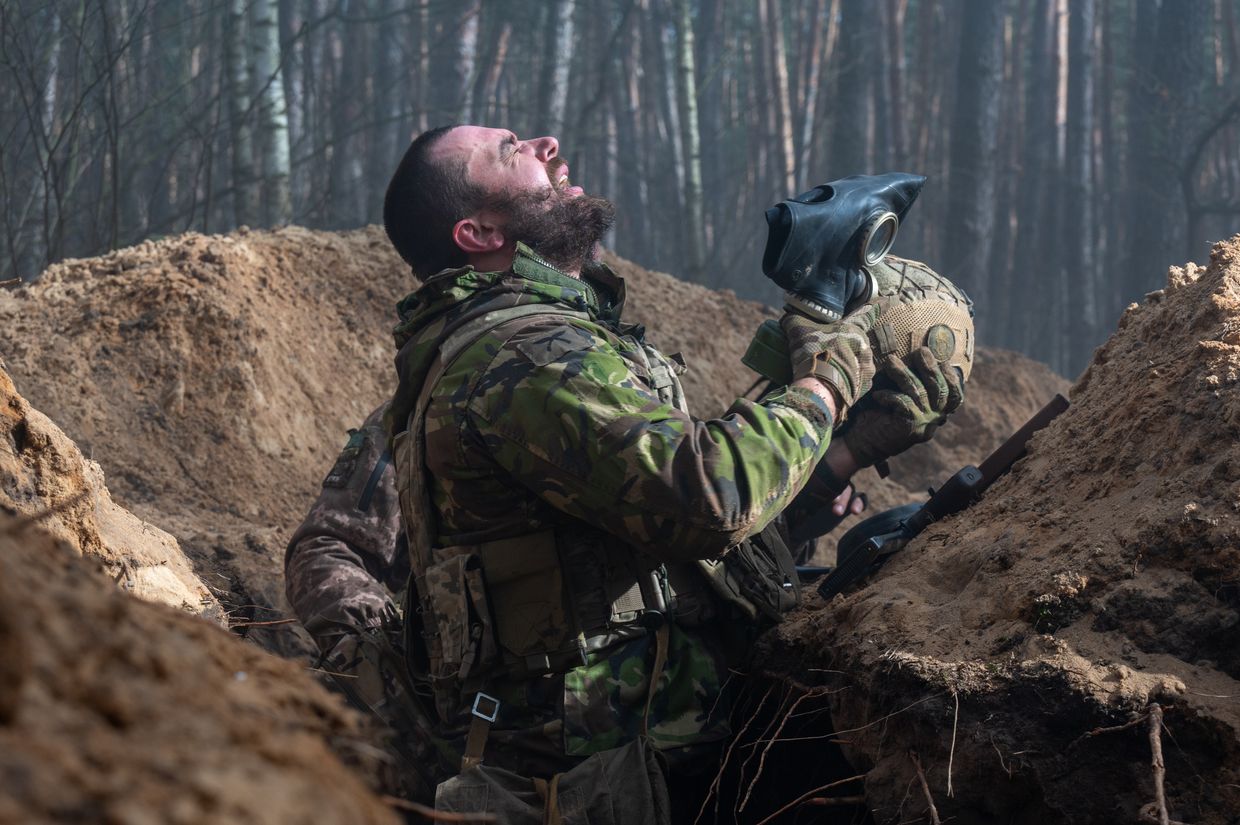- cross-posted to:
- ukraine@sopuli.xyz
- cross-posted to:
- ukraine@sopuli.xyz
Gasping for air from a trench in eastern Ukraine, an infantryman was ready for the worst when a suffocating white smoke spread into his position.
A Russian drone had just dropped a gas grenade into the trench, an internationally banned practice in warfare used to suffocate Ukrainian soldiers hiding inside. Forced out in the open, the Ukrainians immediately became vulnerable targets for Russian drones and artillery.
. . .
Russia has increasingly deployed chemical agents in its grand offensive to occupy the last cities in the Donbas region under Ukrainian control. The suffocation tactic is to take out entrenched personnel and dampen the morale of Ukrainian soldiers who – severely outmanned and outgunned – have been withdrawing village by village in the east for nearly a year.



I’ll plug an interesting blog post on the topic of using chemical weapons. The post concerns itself mostly with lethal weapons, but I feel like some of the points apply here as well.
The essence is that for modern military systems, mobility and the relative cost of manufacturing, storing and employing (lethal) chemical weapons compared to protective equipment render them much less valuable than conventional explosive munitions. They see usage mostly between weaker static armies, which lack the equipment, training or command doctrines for modern warfare.
The banning of chemical weapons was done because they weren’t generally very useful for the modern systems of the superpowers at the time. Russia cracking them out again suggests they no longer have all the capabilities of a modern superpower. Which probably isn’t super new for most people, but might be worth spelling out anyway.